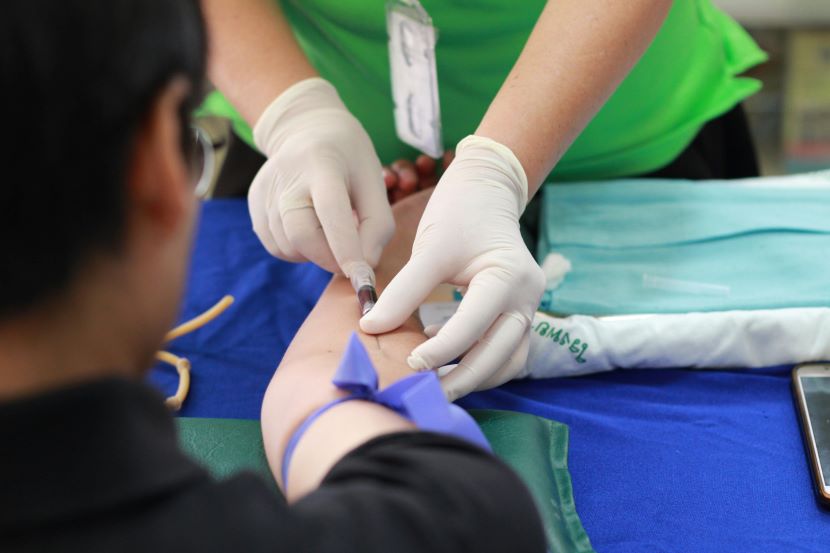Published on
September 13, 2025

Russia’s Health Minister, Mikhail Murashko, recently proposed an ambitious initiative to expand medical tourism between Russia and Vietnam. In a meeting held in Hanoi with Vietnamese Health Minister Dao Hong Lan, Murashko outlined the potential for increasing cooperation in the medical sector. The two nations have been in discussions about forming a broader health partnership that would allow Russian citizens to benefit from medical services in Vietnam, promoting travel for treatment and healthcare needs.
Expanding Healthcare Cooperation
A wide range of areas for cooperation has been proposed, including the sharing of medical equipment and expertise in several specialized medical fields. The two ministers discussed areas such as maternal and child health, the development of oncology technologies, biotechnology, ophthalmology, dentistry, and traditional medicine. Each of these areas represents an opportunity for both countries to learn from one another’s expertise and create a robust medical exchange program.
The cooperation would also extend to collaborative efforts in pharmaceutical research and development, where Russia aims to share knowledge and experience with Vietnam’s medical community. As part of the ongoing discussions, there are also talks about advancing early disease screening technologies and digital health innovations that can help both nations improve patient care.
Increasing Access to Medical Services for Russian Citizens in Vietnam
One of the key proposals on the table is the development of health-linked tourism, designed to make it easier for Russian citizens to travel to Vietnam for medical treatments. Murashko emphasized that Russia is eager to facilitate this aspect of the partnership by streamlining processes and providing necessary infrastructure for travel. By making medical services more accessible in Vietnam, Russian citizens would have the opportunity to benefit from high-quality treatments and procedures at affordable costs.
The Russian Ministry of Health has shown its readiness to support this initiative by providing Vietnam with a comprehensive list of leading hospitals, pharmaceutical companies, vaccine research centers, and technological institutions. The idea is to open new avenues for collaboration and knowledge exchange, ensuring that both countries can draw from each other’s strengths in healthcare and innovation.
A Visit to the Vietnam-Russia Eye Hospital in Hanoi
During his visit to Vietnam, Murashko toured the Vietnam-Russia Eye Hospital, located in Hanoi. This hospital holds a special place as it is the only facility in the country to have received transferred techniques for ophthalmic microsurgery from the S. Fyodorov Eye Microsurgery Federal State Institution in Russia. This exchange of medical knowledge reflects the ongoing efforts to improve healthcare in both nations and build closer ties in specialized medical fields such as ophthalmology.
In addition to ophthalmic surgery, the Russian delegation that accompanied Murashko included representatives from pediatric centers and specialists in pediatric ocular oncology. This highlights Russia’s commitment to supporting not only general healthcare but also specialized treatment in critical fields such as childhood cancer. It is an area where both countries are eager to collaborate, particularly in developing new methods and treatments.
Shared Focus on Childhood Cancer Treatment and Vaccine Development
One of the most significant contributions that Russia hopes to make in its partnership with Vietnam is in the area of childhood cancer. Russia is currently developing several drugs and vaccines that show promise in preventing childhood cancers. Murashko expressed a strong desire to share these breakthroughs with Vietnamese medical professionals. This collaboration could lead to new treatment options for young patients and strengthen the global fight against pediatric cancers.
In this regard, Russia’s healthcare leaders are hopeful that their progress in oncology and vaccine research can directly benefit Vietnam’s growing healthcare infrastructure. By working together, both nations can accelerate research, improve medical technologies, and introduce advanced treatment options for vulnerable populations, particularly children.
Vietnam’s Strategic Role in the Medical Tourism Sector
Vietnam is quickly emerging as a hub for medical tourism, with an increasing number of international patients seeking treatment at the country’s well-established medical facilities. The country’s reputation for high-quality medical services at lower costs than many Western countries has made it an attractive destination for people looking to receive affordable and effective healthcare.
With Russia’s interest in expanding health-linked tourism, the Vietnamese government sees this collaboration as an opportunity to further develop its medical tourism sector. The proposed cooperation will help to strengthen Vietnam’s position as a leading destination for medical treatments in Asia. It will also create new opportunities for both countries to engage in reciprocal travel and treatment programs, benefiting not only patients but also healthcare professionals who will gain valuable international experience.
Looking Ahead: Future Collaborations Between Russia and Vietnam
This partnership marks just the beginning of what could be a long and fruitful collaboration between Russia and Vietnam in the medical field. Both nations are looking forward to expanding their relationship in healthcare and medical tourism by developing new solutions to complex medical issues and creating opportunities for shared expertise.
The cooperation could also result in a deeper exchange of knowledge in areas like biotechnology and digital health, two fields that are set to define the future of healthcare. As both Russia and Vietnam work together, their shared commitment to improving healthcare services, advancing medical technologies, and ensuring greater access to treatments will benefit not only their citizens but also international patients who choose to seek medical care in their respective countries.







